How do you follow up not only one of the greatest sequels of all time but one of the greatest horror movies of all time? This was the problem facing director Rowland V. Lee when he was tasked with helming the sequel to James Whale’s Bride of Frankenstein, made even trickier by the fact that both Doctor Frankenstein and the Monster perished at the end of that film, but Universal Pictures wasn’t about to let something trivial as death to stop them from making more money and thus the world was treated to the Son of Frankenstein.
Inheriting a title and a castle estate may seem like a windfall to the average person but then there are things like property taxes to worry about, not to mention the cost of upkeep, and if your ancestor just so happened to have pissed off the locals by creating a rampaging monster that terrorized their village, you may find yourself a little ostracized from your neighbours. It’s this situation that Baron Wolf von Frankenstein (Basil Rathbone) faces in the 1939 classic Son of Frankenstein, with him and his wife Elsa (Josephine Hutchinson) and son Peter (Donnie Dunagan) travelling to his late father’s estate in the Bavarian Alps to claim his inheritance, an inheritance that also includes all the required papers to reproduce his late father’s work concerning the creation of life. The Baron doesn’t even have time to settle in when he is visited by police Inspector Krogh (Lionel Atwill), who has an artificial arm due to Frankenstein's creature having ripped out one of his arms when he was a child, and he informs Wolf that not only are the villagers hostile to his arrival but he also warns him that there have been a series of murders that have taken place prior to his arrival, with the victims being found with their hearts exploded. This is not quite the welcome a person hopes to get when they are setting up at a new abode.
“I was going to bring a fruit basket, but instead, here are some dire warnings.”
While investigating his father's castle, Wolf meets local grave robber Ygor (Bela Lugosi), a man who survived being hanged and is now quite embittered against the men who sent him to the gallows, but when Ygor shows Wolf the Monster's comatose body, located down in the crypt where his grandfather and father were buried, he comes up with the brilliant idea of reviving the Monster to prove his father was correct and to restore honour to his family. This does not make a lot of sense, earlier in the film Wolf railed on and on about how his father only failed because his idiot assistant grabbed an abnormal brain instead of a healthy one, that hunchbacked Fritz tormented the creature is also probably a factor, so how can reviving that particular creature end in any other way but in more tragedy? At no point does Wolf even suggest replacing the brain with a good one and thus any deaths that follow would clearly be on his head. That the Monster's only answers to Ygor is probably another Big Red flag that things are not going to go well, but I guess one must not stand in the way of mad science.
“If I don’t revive him, I’ll lose my standing among all the other mad scientists.”
Stray Observations:
• Why do Baron Wolf von Frankenstein and Baroness Elsa von Frankenstein have a child with a deep Memphis-Texas accent?
• Inspector Krogh tells the Baron that the monster ravaged the countryside, killing, maiming, terrorizing, and even tearing a child’s arm out by the roots, which seems more in character with the monster from Mary Shelley’s book than that of the one portrayed by Karloff.
• In Bride of Frankenstein, we saw the Monster, his Bride and Dr. Pretorius being blown up when the castle was destroyed, yet Igor somehow found and saved the monster, but there is no mention of the bride’s remains. Are we to assume that Karloff’s monster was more indestructible than Elsa Lanchester’s bride?
• Wolf discovers that it wasn’t the lightning that brought the monster to life but cosmic rays, which he believes are responsible for the creature’s invulnerability and immense strength. This is something Reed Richards of the Fantastic Four would discover years later when he and his friends ventured into space.
• Ygor using the Monster as a tool of murder and mayhem echoes a little of Bela Lugosi's use of a gorilla in Murders in the Rue Morgue for his nefarious schemes.
• The villagers storm the castle due to their belief that Wolf has unleashed the Monster, a crime that he is actually guilty of, but at the end of the film he and his family get a hero's farewell from the people all because he pushed the monster toward his death, and I have to wonder "Are they all that forgiving?" Wolf must have had one helluva lawyer to escape not only the mob but jail time for being an accessory to several murders.
That Elsa doesn’t divorce him for child endangerment is also a bit surprising.
The plot of Son of Frankenstein is a tad contrived, not quite fitting the events as depicted in the previous film, but it more than makes up for that failing by giving us one of Bela Lugosi’s best performances, his portrayal of the revenge-fueled Ygor is the highlight of the picture and raises the bar for all future mad-science assistants to come. We also have some nice fiery face-offs between Basil Rathbone’s mad scientist and Lionel Atwill’s indomitable police inspector to liven things up, sadly, poor Boris Karloff is the one cast member with a rather thankless role as the monster has now been relegated to a mute creature who seems nothing more than an extension of Ygor’s rage. Now, there are a couple of moments dealing with the Monster and his somewhat odd relationship with young Peter but the film doesn’t seem to have time to explore his softer side.
“Who tore out all of my lines from this script?”
Director Rowland V. Lee handled the grim mood of this piece quite well, while also providing some decent moments of dark humour that helped some of the story’s more nonsensical elements go down a little easier, and cinematographer George Robinson did his best to give the film a nice dark expressionist feel and his gothic lighting is spectacular, much like the horror entries by Fritz Lang and F. W. Murnau, and while this film pales in comparison to what James Whale provided viewers in this two entries, this is still a decent Universal Monster Movie and is rightfully considered by many to be the "The last of the great Frankenstein films" before the genre descended into self-parody.
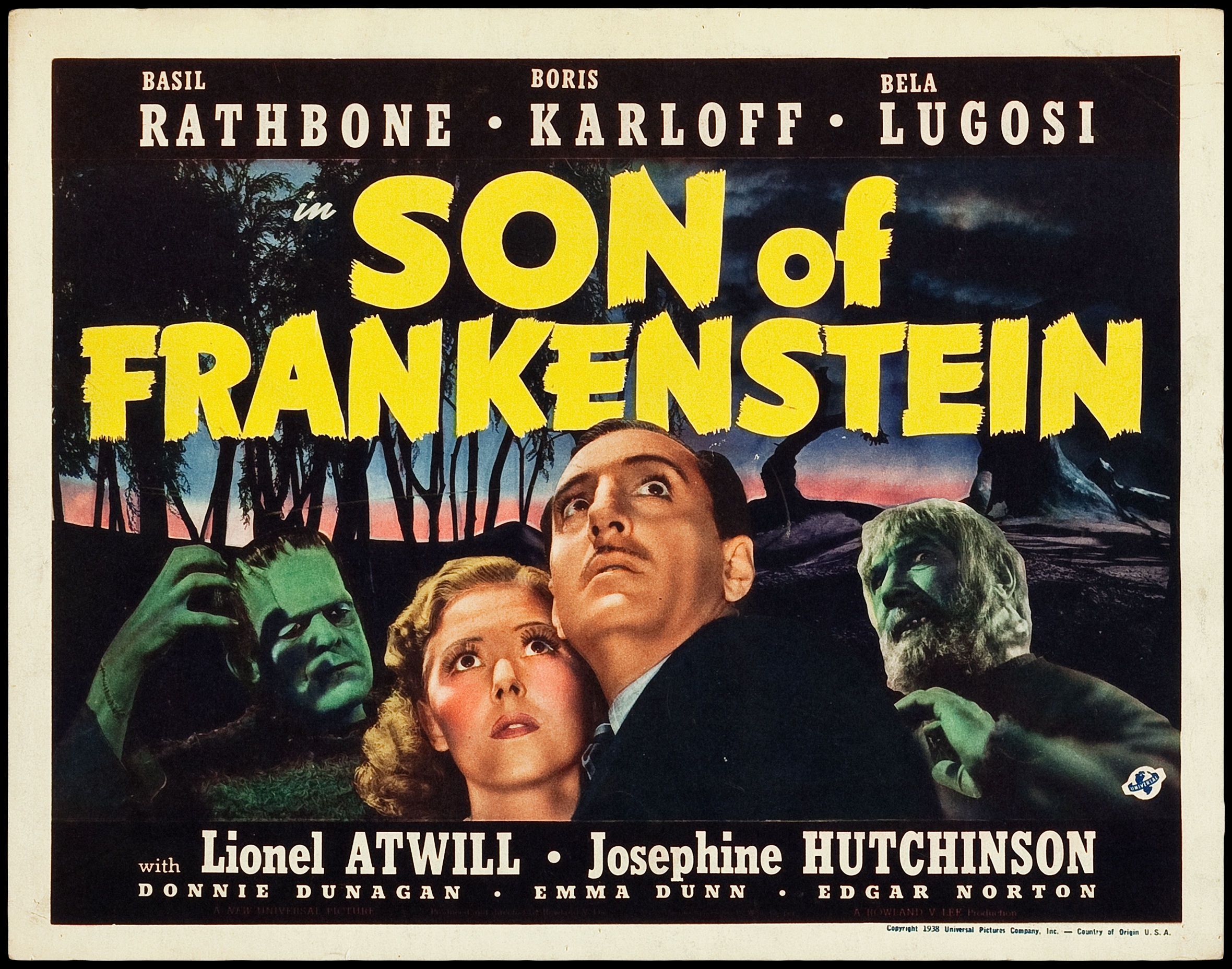
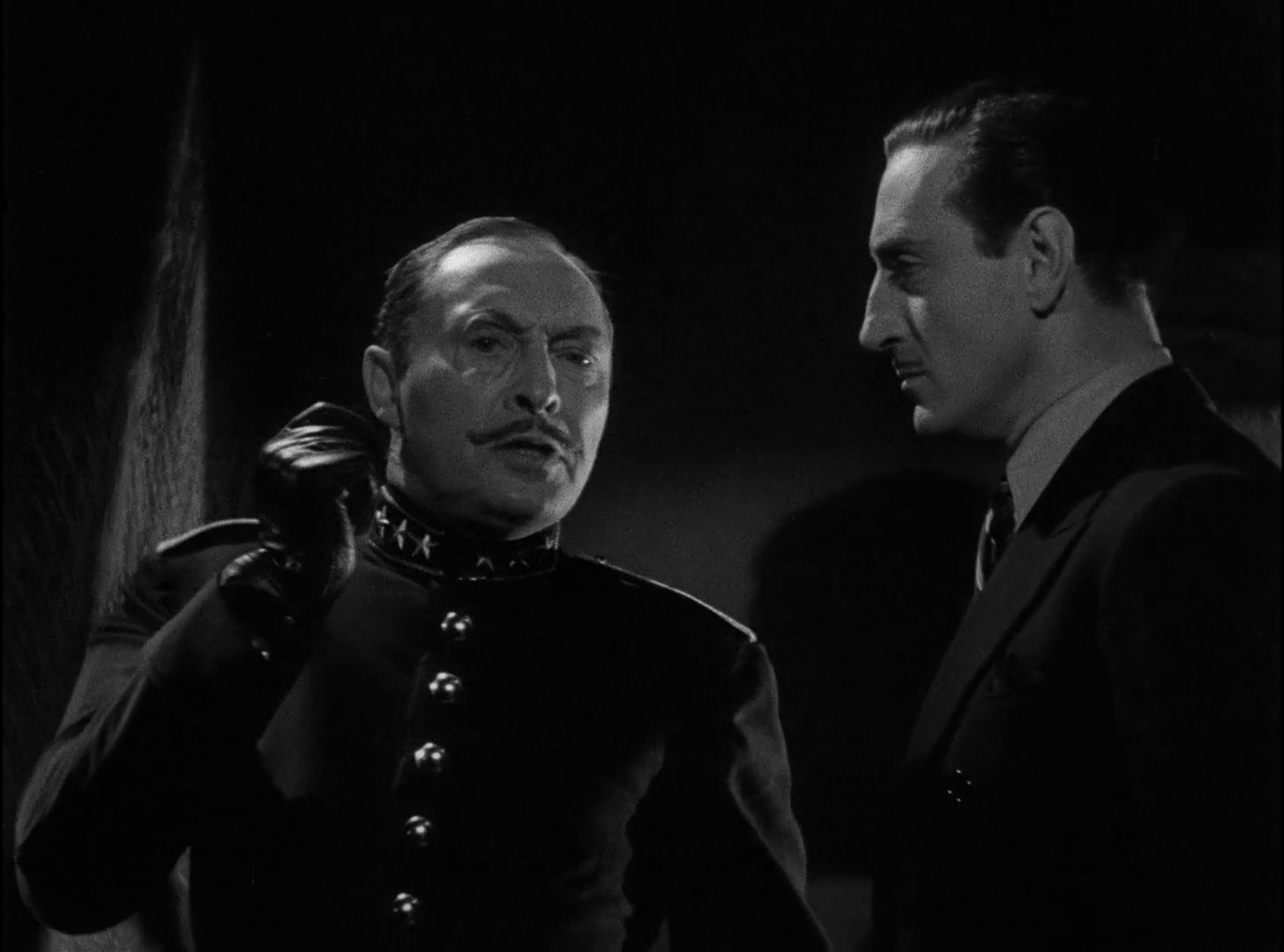
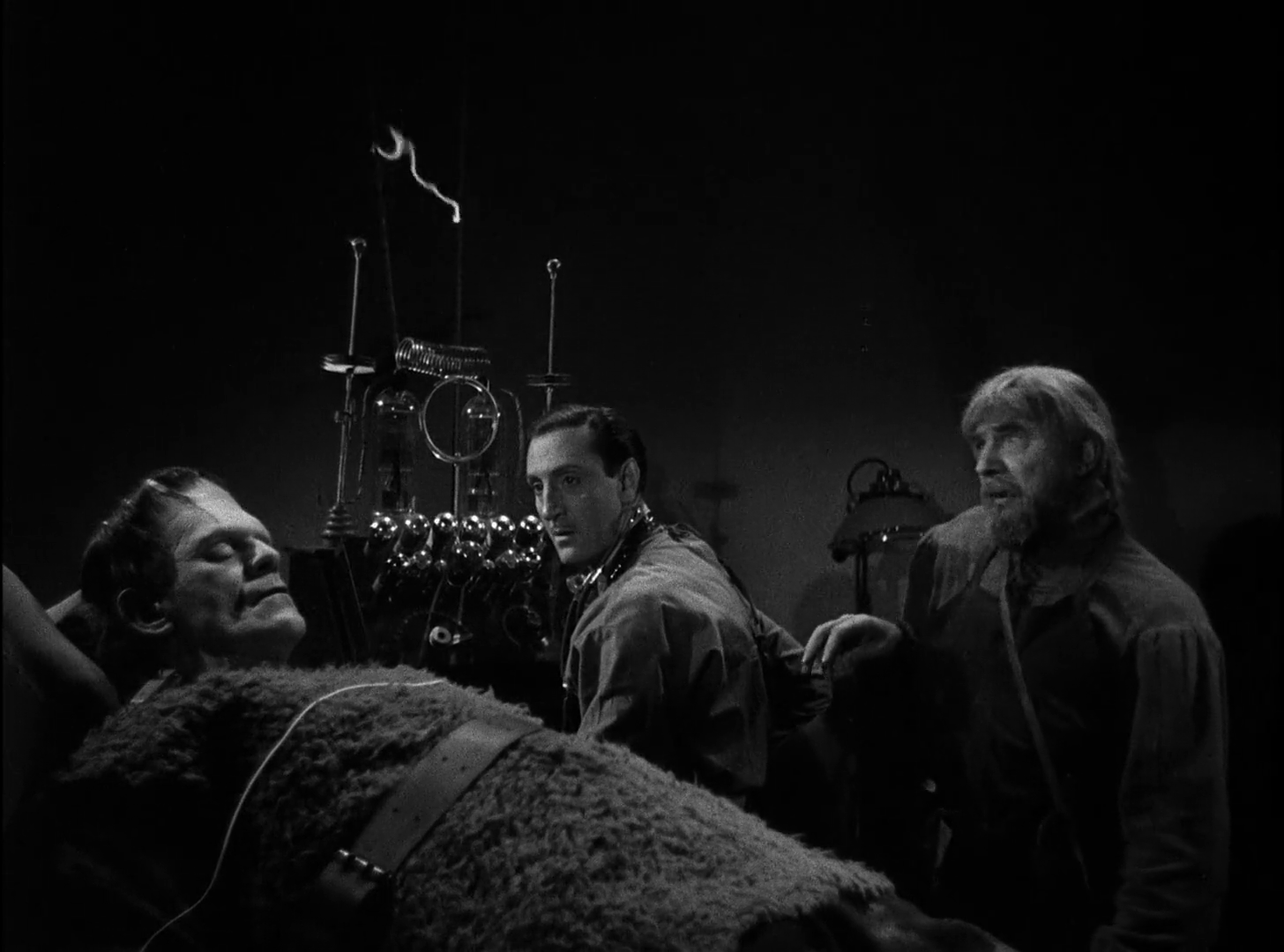
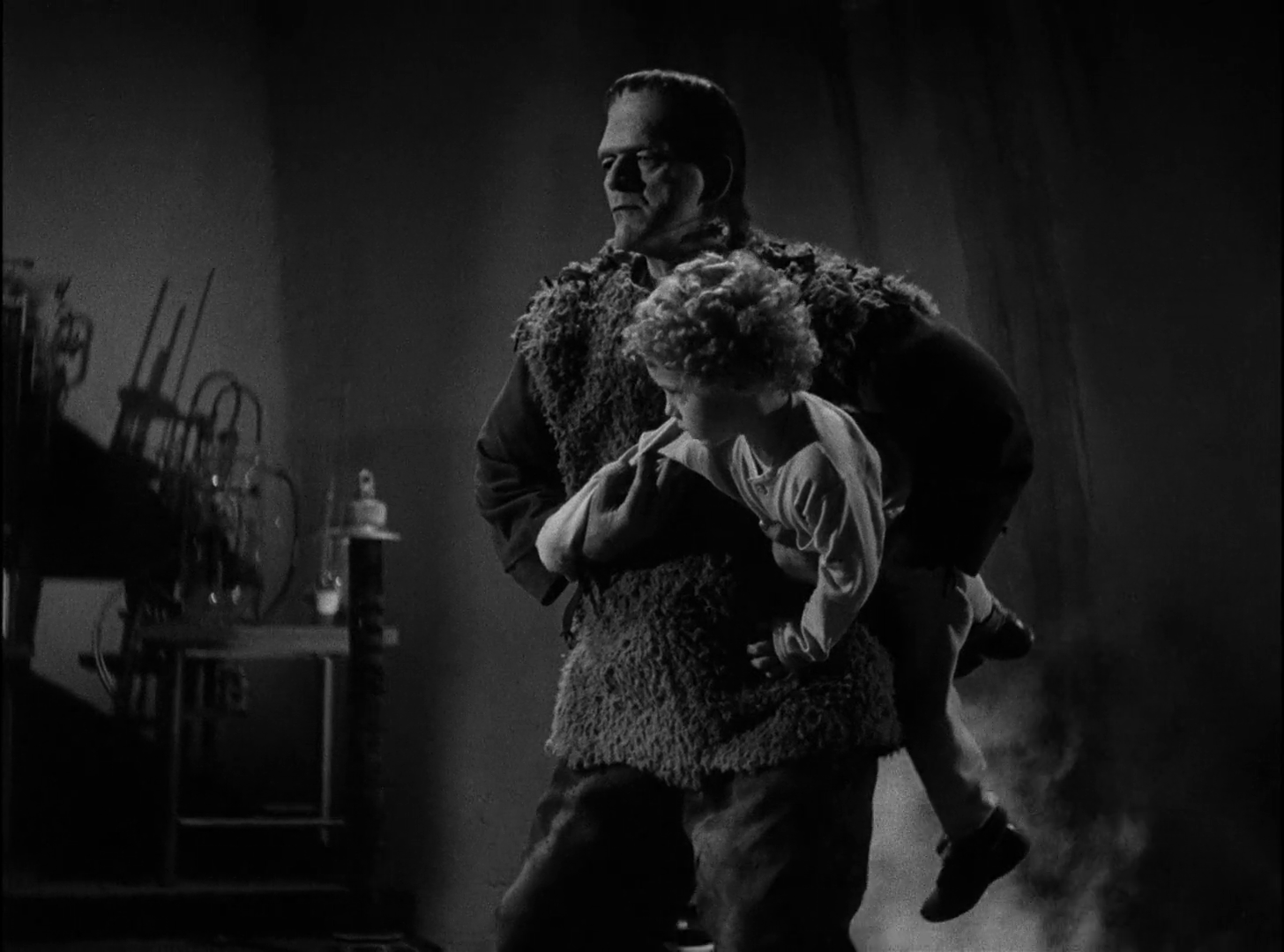
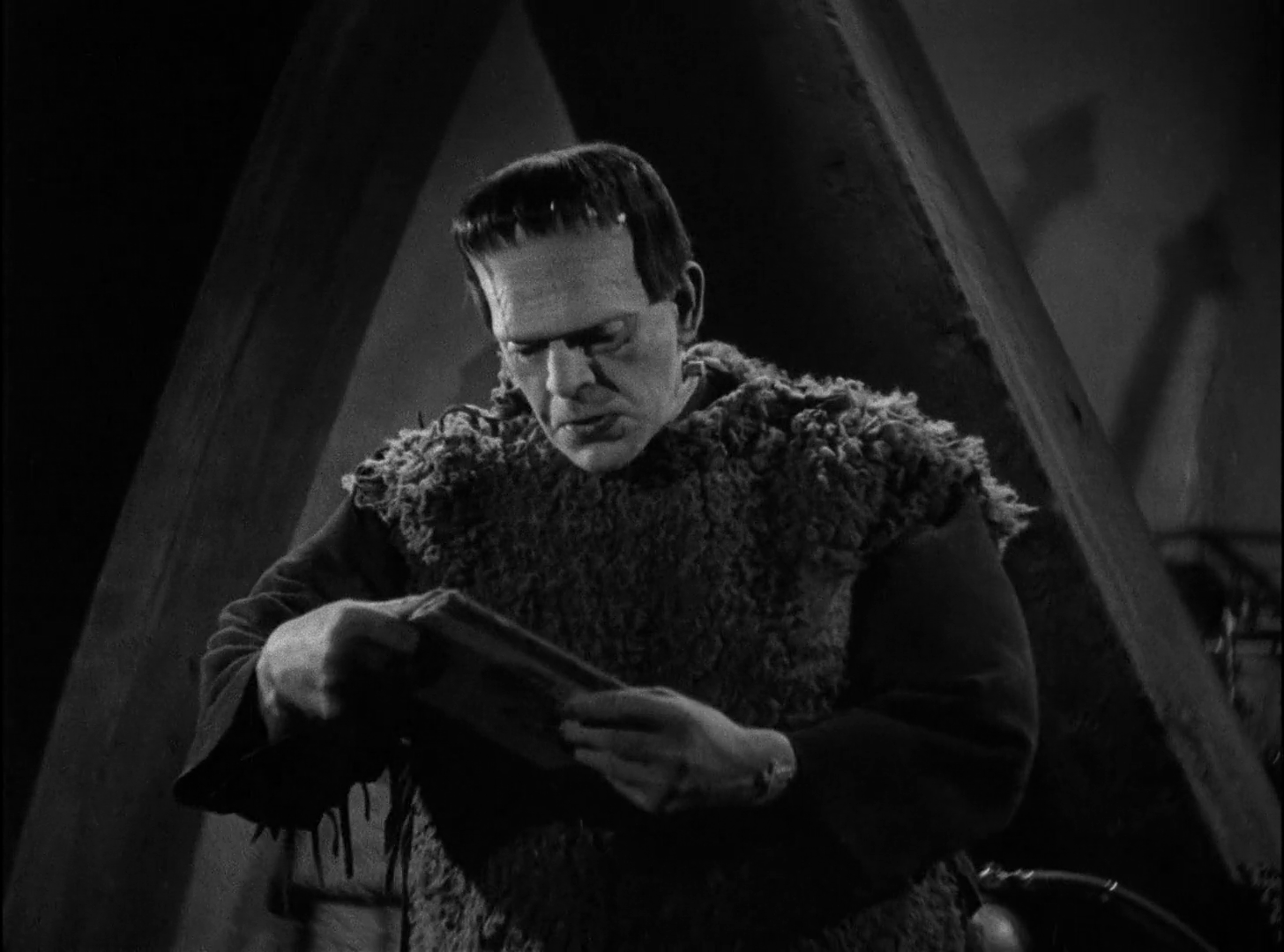

No comments:
Post a Comment